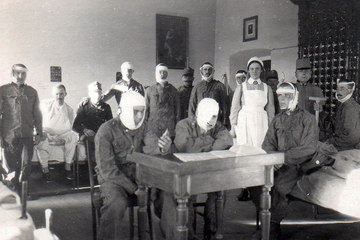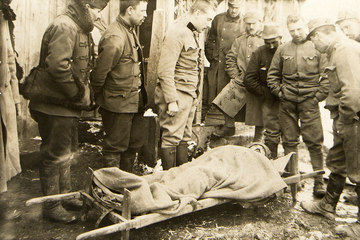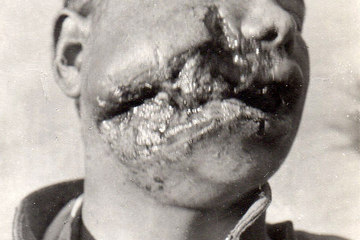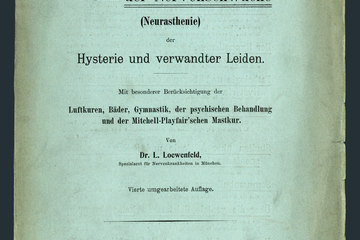Medicine in the First World War
The use of modern weaponry and the mass mobilisation of soldiers placed new demands on medicine. The war brought a series of novel injuries through shrapnel, high-speed bullets and poison gas. The hitherto unseen masses of wounded soldiers meant that medical care had to be strictly organised and volunteers enlisted as medical orderlies and nurses. The many injured soldiers or those suffering from the typical wartime epidemic diseases such as typhoid fever, cholera or typhus soon stretched the health care system to its limits. As a result of the medical challenges produced by the war, significant advances were made in disciplines like plastic surgery, prosthetics, poison gas research, blood transfusion and bacteriological hygiene. A study of medicine in the First World War must look at the interactions, exploitation of medicine and the benefits for medical science of the specific war situation.
Translation: Nick Somers











